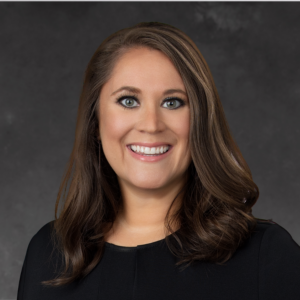
Beaird Harris Among America’s Top Registered Investment Advisors
Beaird Harris has been ranked as one of Financial Advisor Magazine’s 2024 America’s Top RIAs!


We’ve learned a lot about investing over the past 25 years, a period that has seen many breakthroughs in the world of finance. What we know comes from studying public markets and is grounded in serious academic research. The lessons are clear: Investing in markets is an excellent plan for meeting long-term goals, like maximizing your retirement income. When you develop a deeper understanding of public markets, you can cultivate a sense of optimism about investing.
Two ideas are at the heart of embracing this approach:
First, markets provide a way for both sides to win. In order to trade, both buyer and seller have to agree on a price. If either side felt the price wasn’t meeting his or her needs, they wouldn’t trade. This is what we mean when we say market prices are fair.
Second, markets allow all of us to invest in human ingenuity—and get paid for it. We want to help as many people as possible access what markets offer in investment opportunities and wealth generation so they can live better lives.
Even though the investment principles we run on are simple, they aren’t always easy to understand and accept. Many people struggle with some of the basic concepts behind long-term, highly diversified investing—it’s a matter of human nature.
Here are some of the objections we’ve encountered. We think most of us can relate to at least one of them.
1. “I don’t see the point of investing in the first place.”
Any decision you make with your money—even not investing—is an investment decision involving risk and rewards. You’re focused on the risk involved in investing. But what are you risking by not investing? You’re risking today’s money having less value in the future because of inflation. You’re missing out on the magic of compounding, which Albert Einstein is said to have described as the Eighth Wonder of the World. (Assuming an average 10% return, as the S&P 500 has returned historically, money invested in the stock market doubles every seven years.) You’re forgetting that diversification—spreading your investments across a large number of companies—is a powerful way to minimize risk. When it comes to personal goals, everything has a tradeoff. Most people don’t have enough money saved to be able to live adequately in retirement without earning some kind of investment return. In the simplest terms, by not investing, you risk outliving your money.
2. “I’m too late. The train has left the station.”
It’s natural to feel regret about decisions you’re unsure about. But it’s never too late to invest. Every day, we expect the stock market to go up. Otherwise, investors would find other things to do with their money.
3. “When it comes to investment advice, I don’t know who I’m supposed to trust.”
Here’s the good news: You don’t have to “trust” anyone. Just trust the market. No human being can tell you more than the market has already told you through setting prices. Markets are always reacting to new information in real time. Anything you hear a pundit say on TV or read on an internet message board is yesterday’s news. And it may seem obvious, but you have to remember: There’s a difference between fact and opinion. Cultivate a healthy sense of skepticism when it comes to financial punditry, and remember that it’s not news, but entertainment. And if you need a trustworthy sounding board, consider meeting with an independent financial advisor, whose interests are aligned with your own.
4. “It’s too hard to figure out when to get into—or out of—the market.”
Human beings have a natural urge to transact. But getting into and out of the market is gambling, not investing. If you treat the market like a casino, and you’re picking stocks or attempting to time the market, you need to be right twice—in an aim to buy low and sell high. Fortunately, you don’t need to time the market to have a good investment experience. Professor Eugene Fama, a Nobel laureate in economic sciences, showed that it’s unlikely for any individual to be able to pick the right stock at the right time—especially more than once.1 Once you decide to be a long-term investor, the timing debate is off the table. And that’s a big relief. When you buy the whole market, you’re investing in human ingenuity to find productive solutions to the world’s problems.
5. “I’m afraid I’m going to lose it all.”
If you’re lucky enough to live a long time, you’ll face big market downturns. You’re much more likely to “lose it all” with concentrated investments than with a well-diversified portfolio. Individual investments may go to zero, but the modern-day market has been around for almost a century, has an average annual return of 10%, and has never lost more than 43% in a year.2
6. “I don’t know what I don’t know, and that makes me nervous.”
It’s OK to be nervous! If investing were a slam dunk, there wouldn’t be a positive expected payoff. In order for an investment to offer the possibility of a return above money-market funds, it needs to carry risk. And when it comes to deciding how to grow your hard-earned money, the stakes are high. Uncertainty is scary, but without uncertainty, there would be no opportunity. Stock market behavior is uncertain, just like most things in our lives. None of us can make uncertainty disappear, but dealing thoughtfully with uncertainty can make a huge difference in investment returns and quality of life. Your challenge is to stick with an established plan. A financial advisor can help.
7. “I only want to invest in companies I’m familiar with.”
Stock markets contain all of the publicly traded companies out there. Every company has an incentive to do better. Investing in human potential across a broad range of companies is more likely to pay off than trying to predict which individual company is going to perform best. You can do well without having to outguess the market.
8. “I’m afraid there’s going to be another financial crisis.”
History shows us that there’s always going to be another financial crisis—and another recovery. Every crisis has a different cause, so it feels different every time, but the market has always delivered a positive return once things settle down. Crises, by definition, are not predictable. Markets are forward-looking and remind us of the power of human resilience.
9. “I’m overwhelmed. It’s just too much to think about.”
Inertia is a powerful force. Thinking a little bit about it right now means worrying a lot less in the future. Inaction comes with a price, but this is where a financial advisor can really help.
10. “I don’t have enough money to invest.”
When it comes to investing for your family’s future, there is no minimum. The first and most important step toward investing is saving. It’s human nature to procrastinate. Half the battle is just getting started. This can mean “paying yourself first” by directing a small percentage of each paycheck into savings. Putting money aside regularly becomes a feel-good habit, like exercise. You can witness your own incremental progress and the boost in self-esteem it brings. You’ll be surprised by how easy it is to set this in motion, and you’ll feel good—for yourself, and your family. Just look at these numbers: If you invest $100 today and then $100 per month for 30 years with a 10% return, you’ll end up with almost $200,000.3
Should you have an interest in learning more about our investment approach or our fee-only wealth management firm, please feel free to schedule a complimentary introductory meeting.
FOOTNOTES
1Eugene F. Fama and Kenneth R. French, “Luck versus Skill in the Cross-Section of Mutual Fund Returns,” Journal of Finance 65, no. 5 (2010): 1915–1947.
2In US dollars. S&P 500 Index annual returns 1926–2020. S&P data © 2021 S&P Dow Jones Indices LLC, a division of S&P Global. All rights reserved.
3The performance reflects the growth of a hypothetical investment and assumes reinvestment of income and no transaction costs or taxes.
DISCLOSURES
Adapted from Dimensional Fund Advisors “10 Obstacles to Investing—and How to Overcome Them.”
Diversification neither assures a profit nor guarantees against loss in a declining market.
The information in this document is provided in good faith without any warranty and is intended for the recipient’s background information only. It does not constitute investment advice, recommendation, or an offer of any services or products for sale and is not intended to provide a sufficient basis on which to make an investment decision. It is the responsibility of any persons wishing to make a purchase to inform themselves of and observe all applicable laws and regulations. Unauthorized copying, reproducing, duplicating, or transmitting of this document are strictly prohibited. Dimensional accepts no responsibility for loss arising from the use of the information contained herein.
“Dimensional” refers to the Dimensional separate but affiliated entities generally, rather than to one particular entity. These entities are Dimensional Fund Advisors LP, Dimensional Fund Advisors Ltd., Dimensional Ireland Limited, DFA Australia Limited, Dimensional Fund Advisors Canada ULC, Dimensional Fund Advisors Pte. Ltd., Dimensional Japan Ltd., and Dimensional Hong Kong Limited. Dimensional Hong Kong Limited is licensed by the Securities and Futures Commission to conduct Type 1 (dealing in securities) regulated activities only and does not provide asset management services.
UNITED STATES: Dimensional Fund Advisors LP is an investment advisor registered with the Securities and Exchange Commission.
Please remember that past performance may not be indicative of future results. Different types of investments involve varying degrees of risk, and there can be no assurance that the future performance of any specific investment, investment strategy, or product (including the investments and/or investment strategies recommended or undertaken by Beaird Harris Wealth Management, LLC -“Beaird Harris”), or any non-investment related content, made reference to directly or indirectly in this blog will be profitable, equal any corresponding indicated historical performance level(s), be suitable for your portfolio or individual situation, or prove successful. Due to various factors, including changing market conditions and/or applicable laws, the content may no longer be reflective of current opinions or positions. Moreover, you should not assume that any discussion or information contained in this blog serves as the receipt of, or as a substitute for, personalized investment advice from Beaird Harris. Please remember that if you are a Beaird Harris client, it remains your responsibility to advise Beaird Harris, in writing, if there are any changes in your personal/financial situation or investment objectives for the purpose of reviewing/evaluating/revising our previous recommendations and/or services, or if you would like to impose, add, or to modify any reasonable restrictions to our investment advisory services. To the extent that a reader has any questions regarding the applicability of any specific issue discussed above to his/her individual situation, he/she is encouraged to consult with the professional advisor of his/her choosing. Beaird Harris is neither a law firm nor a certified public accounting firm and no portion of the blog content should be construed as legal or accounting advice. A copy of Beaird Harris’s current written disclosure Brochure discussing our advisory services and fees is available for review upon request. Please Note: Beaird Harris does not make any representations or warranties as to the accuracy, timeliness, suitability, completeness, or relevance of any information prepared by any unaffiliated third party, whether linked to Beaird Harris web site or blog or incorporated herein and takes no responsibility for any such content. All such information is provided solely for convenience purposes only and all users thereof should be guided accordingly.

Beaird Harris has been ranked as one of Financial Advisor Magazine’s 2024 America’s Top RIAs!

In times of high inflation, managing lifestyle creep is crucial to maintaining financial stability and achieving long-term financial goals.

Whether you’ve been investing for decades or are just getting started, at some point you’ll likely ask yourself some fundamental questions. The 10 listed here…
Schedule a complimentary call today. We’ll help you get started and learn more about Beaird Harris.